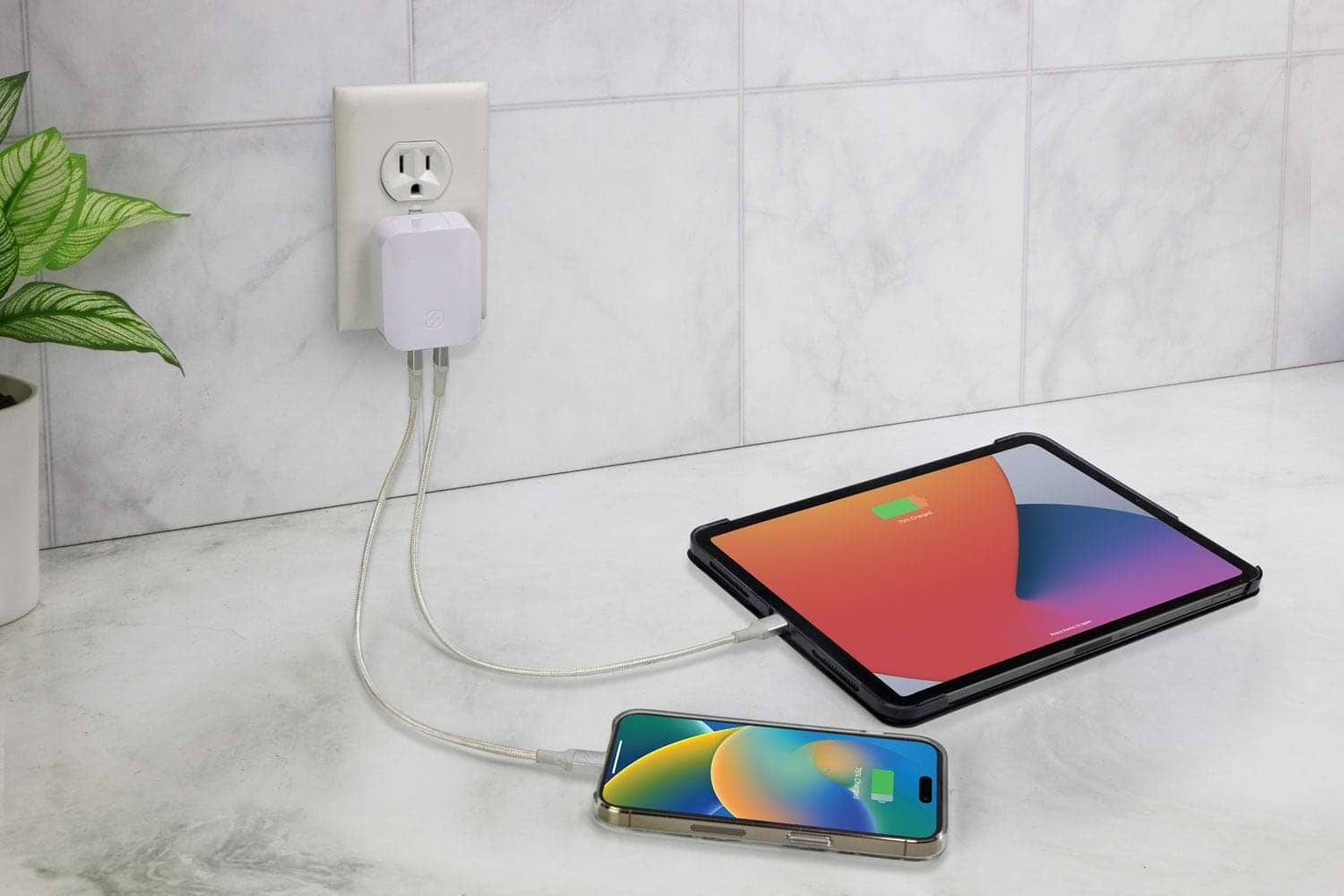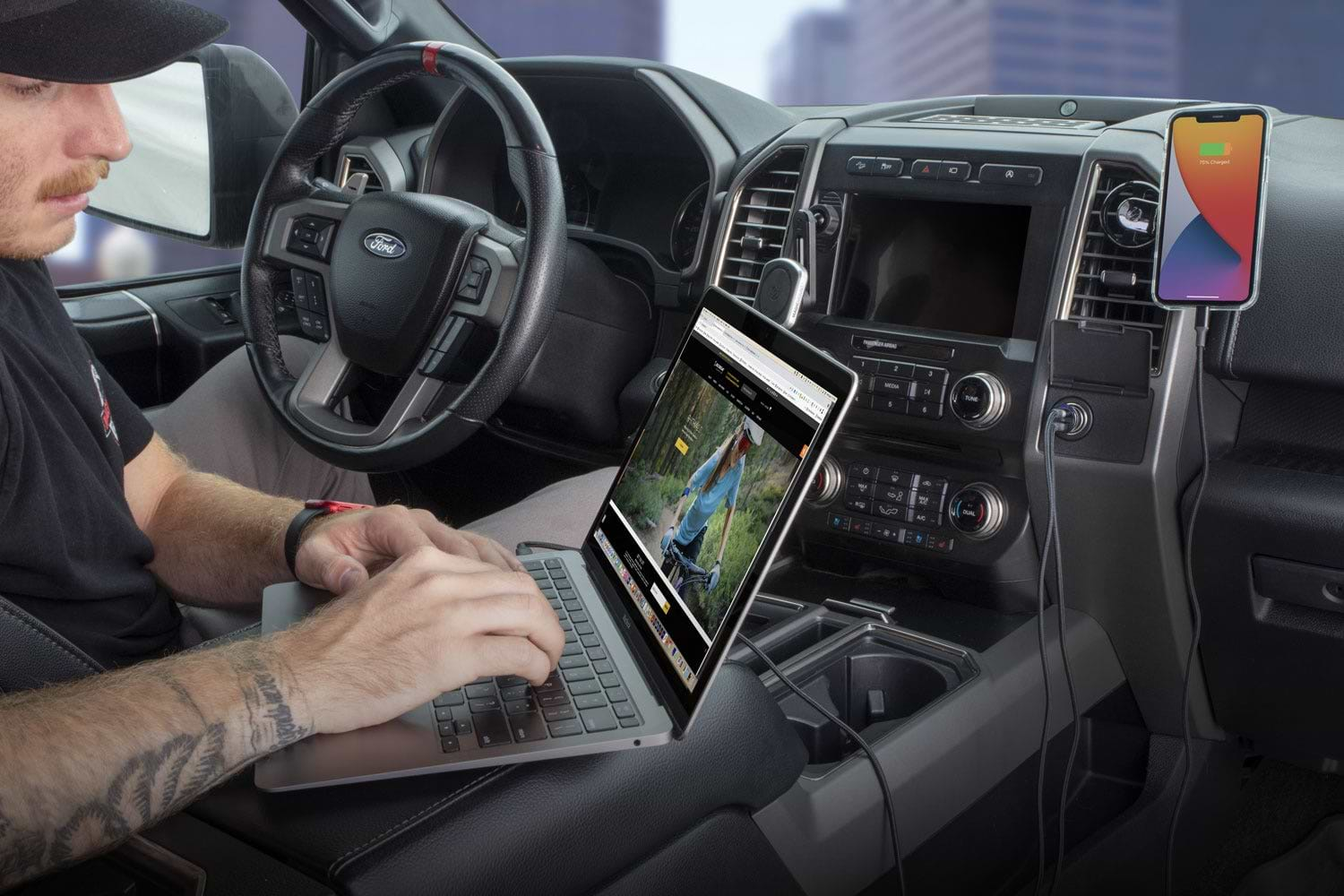Determining Phone Charger Wattage for Efficiency

In today's world, our smartphones are an essential part of our everyday lives. We rely on them for communication, entertainment, and even for work. However, none of these activities would be possible without a reliable and efficient phone charger. The wattage of your phone charger plays a crucial role in determining how quickly your phone charges and how efficiently it uses energy. In this article, we will delve into the world of phone charger wattage and provide you with the information you need to make an informed decision when choosing a charger for your device.
Understanding Phone Charger Wattage
Before we dive into the details, let's first understand the basics of wattage in electronics. Wattage is a measure of the power consumed by an electronic device. It indicates how much energy is needed by the device to operate efficiently. In the context of phone chargers, wattage refers to the amount of power they can deliver to your phone.
When it comes to electronics, including phone chargers, higher wattage generally translates to faster charging speeds. A charger with a higher wattage can deliver more power to your phone, allowing it to charge at a quicker rate. On the other hand, a charger with lower wattage may take longer to charge your device. It's important to note that not all phones can handle high-wattage chargers, so it's essential to consider your phone's compatibility before making a purchase.
Now that we understand the basics of wattage, let's explore how it affects charging speed. As mentioned earlier, higher-wattage chargers can charge your phone faster than low-wattage chargers. This is because they can deliver more power to your phone's battery. However, it's essential to find the right balance. Using a charger with a wattage significantly higher than your device requires may not necessarily result in faster charging. Your phone's charging circuitry and battery capacity also play a role in determining the charging speed.
It's always a good idea to check your phone manufacturer's recommendations regarding the ideal wattage for charging your device. This information can usually be found in the user manual or on the manufacturer's website.
Additionally, it's worth noting that not all chargers are created equal. Some chargers may claim to have high wattage but may not deliver the promised charging speed. This is why it's important to choose chargers from reputable manufacturers who have a track record of producing reliable and efficient charging solutions. Reading customer reviews and doing thorough research can help you make an informed decision.
Furthermore, it's interesting to know that wattage is not the only factor that affects charging speed. The type of charging cable you use can also make a difference. For example, a high-quality USB-C cable can support faster charging speeds compared to a standard USB-A cable. The cable's thickness, length, and overall quality can impact the flow of power from the charger to your phone.
Another aspect to consider is the charging technology employed by your phone. Some phones support fast charging technologies such as Qualcomm Quick Charge or USB Power Delivery (USB PD). These technologies enable faster charging by optimizing the power delivery process. If your phone supports such technologies, using a charger that is compatible with them can significantly reduce charging times.
Moreover, it's important to understand that charging speed can also be influenced by external factors. For instance, the temperature of your surroundings can affect how quickly your phone charges. Extreme temperatures, whether too hot or too cold, can impact the efficiency of the charging process. It's advisable to charge your phone in a moderate temperature environment to ensure optimal charging speed.
In conclusion, understanding phone charger wattage is crucial for efficient and fast charging. Higher wattage chargers generally provide faster charging speeds, but it's essential to consider your phone's compatibility and manufacturer's recommendations. Factors such as charging cable quality, charging technology, and environmental conditions can also impact charging speed. By taking all these aspects into account, you can ensure that your phone charges quickly and efficiently, keeping you connected throughout the day.
The Role of Efficiency in Phone Charging
Now that we understand how wattage affects charging speed, let's take a closer look at the concept of energy efficiency. Efficiency refers to how effectively a charger converts the electrical energy it receives into usable energy for your phone. More efficient chargers minimize energy loss and heat generation, resulting in a greener and more cost-effective charging experience.
When it comes to phone charging, energy efficiency is a key factor to consider. Not only does it save electricity, but it also helps reduce our carbon footprint. By choosing a charger that is labeled with energy efficiency certifications such as ENERGY STAR, EPEAT, or similar standards, you can ensure that the charger meets strict criteria for reducing energy waste.
But why is energy efficiency important for more than just the environment? Well, it turns out that it also plays a significant role in the longevity of your phone's battery. When you use an efficient charger, it provides a more stable and controlled flow of power to your device. This reduces the risk of overcharging and overheating, which can have detrimental effects on your phone's battery life.
Have you ever experienced a phone battery that drains quickly or doesn't hold a charge for very long? This could be due to using a charger that is not energy efficient. Inefficient chargers may deliver inconsistent power, causing your phone's battery to work harder and wear out faster. On the other hand, an efficient charger ensures that your phone receives the right amount of power it needs, without putting unnecessary strain on the battery.
By using an energy-efficient charger, you can extend the overall lifespan of your phone's battery. This means fewer trips to the store to buy a new battery or even a new phone. Not only does this save you money in the long run, but it also reduces electronic waste, contributing to a more sustainable future.
So, the next time you're in the market for a new phone charger, be sure to consider its energy efficiency. Look for those energy efficiency certifications and choose a charger that will not only charge your phone quickly but also help protect the environment and prolong the life of your phone's battery. With an efficient charger, you can enjoy a greener and more cost-effective charging experience, all while keeping your phone powered up and ready for whatever comes your way.
How to Determine Your Phone Charger's Wattage
Now that we have a solid understanding of phone charger wattage and efficiency, let's explore how you can determine the wattage of your current phone charger.
But before we dive into the step-by-step guide, let's take a moment to understand why knowing your phone charger's wattage is important. The wattage of your charger determines how quickly your phone can charge. If you have a charger with low wattage, it may take longer to charge your phone, especially if you have a device with a large battery capacity. On the other hand, a charger with high wattage can charge your phone much faster, saving you valuable time.
Tools Needed for Measuring Wattage
To measure the wattage of your phone charger, you will need a few tools:
- A digital multimeter: This device allows you to measure the electrical current flowing through the charger.
- A USB charging cable: You'll need a cable that connects your phone to the charger for accurate measurements.
Now that we have our tools ready, let's move on to the step-by-step guide.
Step-by-Step Guide to Determining Wattage
Follow these steps to determine the wattage of your phone charger:
- Turn off your phone and disconnect it from the charger. This ensures that the charger is not actively charging any device.
- Using the USB charging cable, connect your phone to the charger. Make sure the connection is secure to avoid any interruptions during the measurement process.
- Set the multimeter to measure amperage (A). This setting allows you to measure the electrical current flowing through the charger.
- Connect the positive (red) probe of the multimeter to the positive (VCC) terminal of the USB cable. This terminal carries a positive electrical charge.
- Connect the negative (black) probe of the multimeter to the negative (GND) terminal of the USB cable. This terminal carries a negative electrical charge.
- Switch on the charger and note the amperage reading on the multimeter. This reading represents the electrical current flowing through the charger.
Now that you have the amperage reading, it's time to calculate the wattage of your phone charger. To calculate the wattage, multiply the voltage (typically 5V for USB chargers) by the amperage reading. For example, if the amperage reading is 2.1A, the wattage would be 10.5W (5V x 2.1A).
Knowing the wattage of your phone charger can help you make informed decisions when it comes to charging your devices. If you find that your charger has low wattage and you're looking for faster charging options, consider investing in a charger with higher wattage. This can significantly reduce the time it takes to charge your phone, especially if you're always on the go.
Remember, it's essential to use chargers that are compatible with your device to avoid any potential damage. Always refer to your device's user manual or consult with the manufacturer to ensure you're using the right charger for your phone.


The Impact of High and Low-Wattage Chargers
Now that you know how to determine the wattage of your charger, let's explore the pros and cons of both high and low-wattage chargers.
Pros and Cons of High-Wattage Chargers
High-wattage chargers come with several benefits:
- Faster charging speeds
- Ability to charge multiple devices simultaneously
However, keep in mind the following considerations:
- Higher-wattage chargers may generate more heat
- Compatibility issues with certain devices
Pros and Cons of Low-Wattage Chargers
Low-wattage chargers also have their advantages:
- Less heat generation
- More portable and lightweight
However, there are a few drawbacks to consider:
- Slower charging speeds
- Inability to charge multiple devices simultaneously
Choosing the Right Charger for Your Phone
Now that we have weighed the pros and cons of high and low-wattage chargers, how do you choose the right charger for your phone?
Factors to Consider When Choosing a Charger
When selecting a charger, consider the following factors:
- Your phone's wattage and charging requirements
- The type of charging port your phone uses (USB-C, Lightning, etc.)
- Your charging needs (Are you frequently on the go? Do you need to charge multiple devices simultaneously?)
Finally, it's crucial to understand your phone's wattage requirements. Check your phone's user manual or the manufacturer's website to determine the recommended wattage for your device. Purchasing a charger that matches your phone's wattage requirements will ensure optimal charging efficiency and safety.
Conclusion
Now that you have a comprehensive understanding of phone charger wattage and efficiency, you can make an informed decision when choosing a charger for your device. Remember to consider your phone's wattage requirements, weigh the pros and cons of high and low-wattage chargers, and prioritize energy efficiency. By doing so, you can ensure that your phone charges quickly and efficiently while also minimizing your environmental impact.